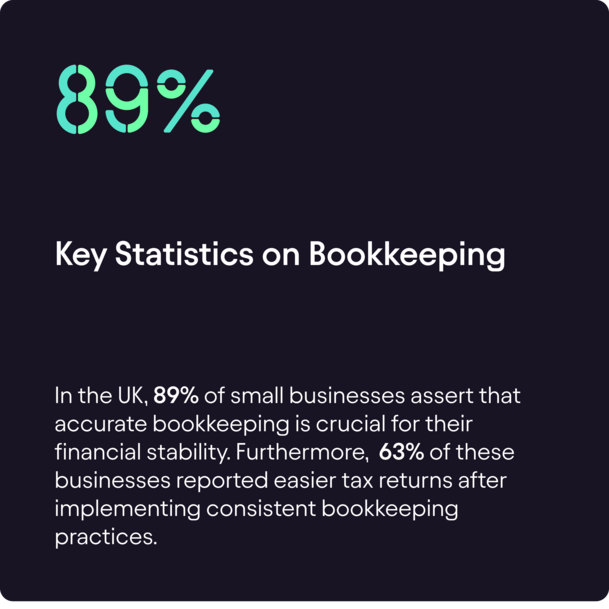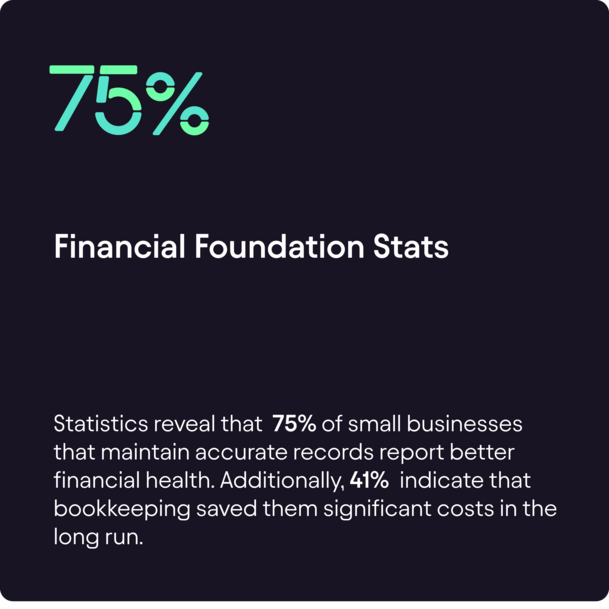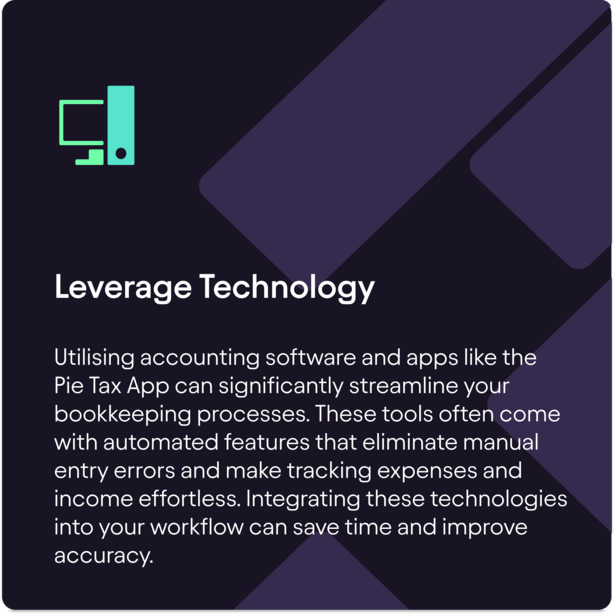Comprehensive Guide to Bookkeeping for Small Businesses

Bookkeeping is an essential aspect of any small business's financial health and long-term success. Proper bookkeeping ensures that your business's financial records are accurate, reliable, and up-to-date. This, in turn, helps in making informed decisions and maintaining compliance with legal requirements.
Many small business owners initially overlook the importance of bookkeeping, considering it as a daunting and time-consuming task. However, understanding and mastering bookkeeping basics can greatly simplify this process. From managing invoices and tracking expenses to preparing for tax season using the Pie Tax App and consulting expert tax assistants available on the Pie app, efficient bookkeeping is the foundation of effective financial management.
This comprehensive guide aims to demystify bookkeeping by breaking down its essential components and offering actionable steps to apply these principles in your business. Whether you're just starting out or looking to refine your existing bookkeeping practices, this guide will provide valuable insights to help you achieve financial clarity and accuracy.
Importance of Accurate Records
Accurate record-keeping is the cornerstone of effective bookkeeping. It ensures that all financial transactions are logged correctly, which is crucial for monitoring your business's financial health. This accuracy helps in generating reliable financial statements, which are necessary for making informed decisions and planning for the future. Additionally, accurate records are vital during tax season, making it easier to prepare your returns through the Pie Tax App and seek assistance from expert tax assistants available on the Pie app.


Managing Income and Expenses
One of the primary functions of bookkeeping is to manage income and expenses. By carefully tracking all income streams and categorising every expense, you maintain a clear picture of your financial standing. This includes monitoring cash flow, which is vital for ensuring that your business has enough liquidity to meet its obligations. Moreover, understanding your expenses can help identify areas where you can cut costs and improve profitability.



Basic Bookkeeping Steps
The first step in bookkeeping is setting up a financial system. Use accounting software or traditional ledger books to record transactions. Tools like Pie Tax App and the expertise of their tax assistants can simplify this process. Start by categorising your income and expenses, making sure each transaction is entered correctly.
Next, regularly reconcile your accounts. This means comparing your records with your bank statements to ensure accuracy. Reconciliation helps catch errors and discrepancies early, preventing larger issues down the line. Consistency is key—reconcile your accounts at least monthly to keep your financial records precise.
Common Bookkeeping Mistakes
One common mistake small businesses make is not separating personal and business finances. Combining these accounts can create confusion and lead to inaccurate financial records. Always maintain separate bank accounts for personal and business use to ensure clarity and accuracy in bookkeeping.
Another frequent error is neglecting regular updates. Bookkeeping is not a one-time task but a continuous process. Failing to update records promptly can result in missing information and potential legal issues. Schedule regular intervals to review and update your financial records to keep them current and reliable.

Top tips for bookkeeping

Keep Business Finances Separate Open a dedicated business bank account to manage your finances. This simplifies tracking expenses and income, making tax filing easier.

Update Your Financial Records Set aside time each week to update your financial records. Consistent tracking helps avoid last-minute stress during tax season and ensures accuracy.

Utilise Bookkeeping Software Invest in bookkeeping software to automate tasks and reduce errors. It streamlines financial management, making it easier to stay organised and compliant.

Fun fact
Did you know that the term "bookkeeping" is one of the few English words with three consecutive sets of double letters?
Expert Tips for Bookkeeping

Consistency in bookkeeping practices is essential. Regularly update your records and reconcile accounts monthly to maintain accuracy. Using templates or dedicated software can also streamline the process, ensuring you stay organized and compliant.
Another key tip is to stay informed about tax laws and financial regulations affecting your business. The Pie Tax App, with its expert tax assistants, is a great resource for staying current. By keeping abreast of changes, you can avoid penalties and optimize your bookkeeping practices for better financial health.


Summary
Accurate and effective bookkeeping is integral to a small business's financial success and stability. From setting up a sound financial system and categorising transactions to regularly reconciling accounts and staying organised, consistent bookkeeping practices lay the foundation for informed decision-making and compliance with tax laws. Tools like the Pie Tax App enhance this process, offering streamlined solutions and expert assistance.
Proper bookkeeping also includes avoiding common mistakes like mixing personal and business finances and neglecting regular updates. Leveraging technology and staying informed about financial regulations are key to maintaining accurate records. As the future of bookkeeping moves towards automation and AI, small businesses that adapt will enjoy improved accuracy and efficiency in managing their finances.
Frequently Asked Questions
What is bookkeeping?
Bookkeeping involves recording all financial transactions of a business. It includes managing invoices, tracking expenses, and ensuring accurate financial records.
Why is bookkeeping important for small businesses?
Bookkeeping helps in maintaining accurate financial records, making informed decisions, and ensuring tax compliance, which is crucial for financial stability and growth.
Can I handle bookkeeping myself?
Yes, you can, especially with tools like the Pie Tax App and expert tax assistants available on the Pie app. However, as your business grows, you may find it beneficial to hire a professional.
How often should I update my bookkeeping records?
It's recommended to update your records at least monthly. Regular updates help maintain accuracy and make it easier to spot and fix any discrepancies.
What are the common mistakes in bookkeeping?
Common mistakes include not separating personal and business finances, neglecting regular updates, and failing to reconcile accounts frequently. Avoid these to ensure accurate and reliable financial records.











